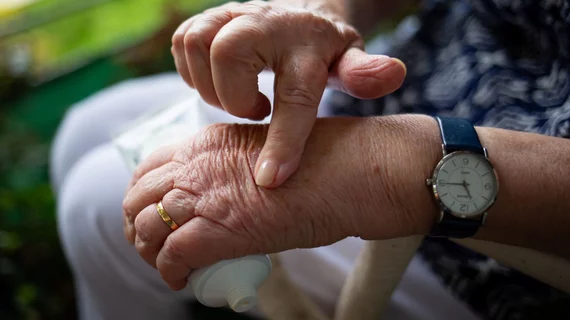A machine-learning algorithm can predict the onset of osteoarthritis on MRI scans taken years before symptoms begin, according to a study published online Tuesday in Proceedings of the National Academy of Sciences of the United States of America (PNAS).
The algorithm was developed by researchers at the University of Pittsburgh School of Medicine and Carnegie Mellon University College of Medicine in Pittsburgh. The team hypothesized that it could be used to visualize sensitive cartilage phenotypes that are predictive of future osteoporosis progression.
“Our approach combines optimal mass transport theory with statistical pattern recognition,” the authors write, noting that they trained a classifier to differentiate progressors and non-progressors on baseline cartilage texture maps.
For the study, the team reviewed knee MRIs from individuals who had been enrolled in the National Institutes of Health Osteoarthritis Initiative, a multicenter, longitudinal prospective observational study of knee osteoarthritis. They focused on a subset of 86 individuals who had had little or no evidence of cartilage damage at the beginning of the study.
Overall, the algorithm predicted osteoarthritis with 78% accuracy from MRIs performed three years before symptom onset, picking up signs of the disease that are too subtle to register in radiologists’ eyes.
Currently, there are no drugs that prevent presymptomatic osteoarthritis from developing into full-blown joint deterioration, but drugs that can prevent patients from developing a related condition—rheumatoid arthritis—do exist.
In a news release, the researchers say a current goal is to more easily develop the same types of drugs for osteoarthritis, in turn reducing the need for more invasive osteoarthritis treatment.
“Instead of recruiting 10,000 people and following them for 10 years, we can just enroll 50 people whom we know are going to be getting osteoarthritis in two or five years,” adds study co-author Kenneth Urish, MD, Ph.D., associate medical director of the bone and joint center at the University of Pittsburgh Medical Center (UPMC) Magee-Women’s Hospital. “Then we can give them the experimental drug and see whether it stops the disease from developing.”
